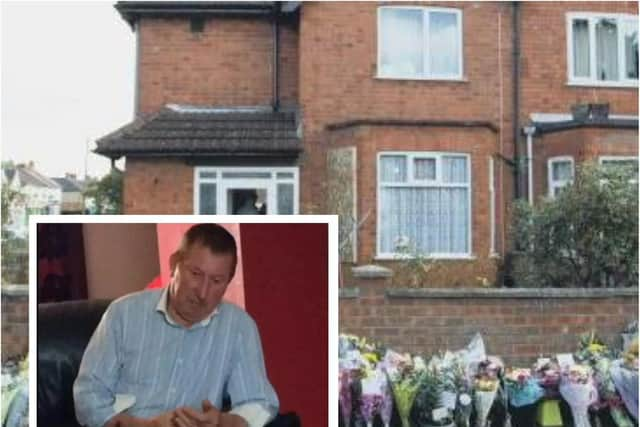David Brickwood trial: DNA found on rubber from window pane is 'heart of the case' in unsolved Northampton murder
and live on Freeview channel 276
A man accused of murdering Northampton's David Brickwood left his DNA on a rubber window seal when he allegedly broke in and killed him, a prosecutor has said.
David Brickwood was stabbed to death at his home in Lindsay Avenue in a late night attack on September 26, 2015.
The case has gone unsolved for more than five years.


Advertisement
Hide AdAdvertisement
Hide AdBut at Birmingham Crown Court yesterday, a prosecutor set out what he said was the breakthrough clue for police that led to the arrest of the man now accused of his murder.
The case revolves around how, during the alleged break in at Mr Brickwood's Abington home, a window pane on the ground floor was removed and the intruders entered through the empty frame.
But in this process, the rubber seal around the window came loose and fell on a garden ornament.
The court heard how, when police tested this rubber seal, they reportedly found the DNA of Cameron St Rose, 26, of Forest Gate, London - the man now charged with his murder.
Advertisement
Hide AdAdvertisement
Hide Ad"This is the key piece of evidence that proves this defendant is guilty," said prosecutor Mr Peter Grieves-Smith QC.
"The way in which that window was removed is at the heart of the case.
"It is the prosecution's case that this defendant removed that window pane, slipped in through the empty frame, forced entry to Mr Brickwood's bedroom and murdered him."
St Rose, who would have been 24 at the time of the alleged offences and was arrested in August 2020, denies both counts of burglary and murder.
Advertisement
Hide AdAdvertisement
Hide AdOn the first day of the trial on April 20, the jury heard how Mr Brickwood "didn't trust the banks" and had nearly £60,000 in cash stashed away in his house at the time of his death.
The prosecution’s case is that St Rose - and one other unidentified male - allegedly broke into Mr Brickwood’s house, forced entry to his bedroom and murdered him in a search for cash.
However, the prosecutor also told the jury: "In some cases there are eye witnesses to a crime. This isn't such a case.
"This case is based on circumstantial evidence [...] but the prosecution says it is very good and compelling evidence."
Advertisement
Hide AdAdvertisement
Hide AdAn inquest later heard the popular scrap metal dealer, who was described as a “pillar of the Abington community” by a neighbour, suffered 35 separate injuries, including multiple stab wounds.
David initially survived the attack and was able to call the police. Officers performed emergency first aid in an attempt to save the 74-year-old’s life, however, he died a short time later at Northampton General Hospital.
The trial continues.